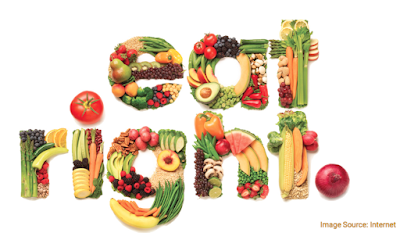(This blog is in continuation of previous two blogs in this thread Story of THE FOOD WE CONSUME (1/3) and Story of THE FOOD WE CONSUME (2/3))
So far, we have understood the dynamics of food we eat and how it affects our long term health. The objective is to find the right food to eat on daily basis in our busy lives.
One of the biggest problems with modern food habits is that much of our food is refined or highly processed. Refining helps giving the end product a softer texture and also extends its shelf life, however, the refining process removes important nutrients like fiber, iron and vitamins. Nutrient content of any food is directly related to spoil rate of that food. A highly processed food is going to last longer on supermarket shelf because pests like mold are less attracted to foods that are low in nutrients. A ready to eat highly processed and packaged Vegetable Rice Biryani will spoil much more slowly than a Vegetable Rice Biryani cooked at home with natural fresh ingredients. This brings us to an interesting question: if highly processed food is so low in nutrients that even pests do not want to consume it, how healthy can it be for us? Thus thinking about nutrient density of food is also a sensible way of making food choices.
Michael Pollan simplified the complexity of our relationship with food. Based on years of research he gave a seven-word simple rule: Eat Food, Not Too Much, Mostly Plants. The key issue is: Are we eating real food? Isn’t all the stuff in supermarket food? Well not really. Michael explains “A lot of the products are relatively new, highly processed edible food-like substances that are really what gets most people in trouble. They tend to have lots of refined sugars, refined fats and very little fiber, very little of antioxidants you find in plants. And basically they were designed for long shelf life, these processed foods. And the way you make food last longer is you take out what is nutritionally valuable.” The rule given by Michael can be interpreted as: Substitute highly processed food with less processed whole foods, do not consume excess calories, and consume a diet rich in plant-based food.
The ideal food to eat on regular basis is undoubtedly home cooked food. In many ways, Cooking is empowerment. The person stirring the pan has the final say on how much fat, sugar, salt and total calories end up in the foods we eat. Unlike the processed food industry or supermarkets or restaurants we have the long term health and the consumer in mind when we prepare our own food.
Many will argue that cooking is time-consuming and needs multiple resources but I believe it is time to make a conscious decision. Do we really want to take back control on our health and lifestyle? It’s all about changing the modern mindset. Cooking could be a great opportunity towards a more harmonious life with our family and friends. Instead of seeing as loss of time, cooking can be seen as investing time into people who matter. Teaching cooking to younger generation, who are missing this traditional art, will not only be fun but a vital lifelong skill. This is not only healthy but also an inexpensive way to live a longer life.
Eating in moderation is another great tool towards a healthy body. If we can master the skill of eating with moderation, then no single food need to be forbidden. We can eat the food we enjoy as long as we don’t consume too much of them. The moment at which you are no longer hungry is many bites before the time you are stuffed. Having a control on food portion size can help immensely. We can also opt for portion control for effective weight management by buying smaller size plates, bowls and cups.
Simple ways to start healthy eating habits is by increasing daily consumption of fresh fruits and vegetables, replacing unhealthy snacks with healthy homemade options, controlling the quantity of fat, salt and sugar. Prepare dishes with a wide variety of different colored vegetables as they contain different micro-nutrients. Sharing cooking process with all family members is a great way to save time. One half of your plate should be plant based food, one fourth in whole grain and the rest in lean protein rich food. Most of the time the best drink to quench our thirst and keep us hydrated and healthy is plain, clean water. Drinking water before each meal may even be helpful for weight management. Eat slowly, eat socially, eat better quality food.
By doing the best we can with the resources that are available to each of us, we can optimize our nutritional health and prevent many of the chronic diseases we as society are fighting with. The possibilities are endless. But getting into the habit of creating a healthy plate, sitting down for mealtime, and taking time to enjoy our meals. These are the pearls of wisdom our great grandmothers wore every day. Eating and sharing food is an ongoing celebration in each culture and it must remain so, only we have to make right choices.

